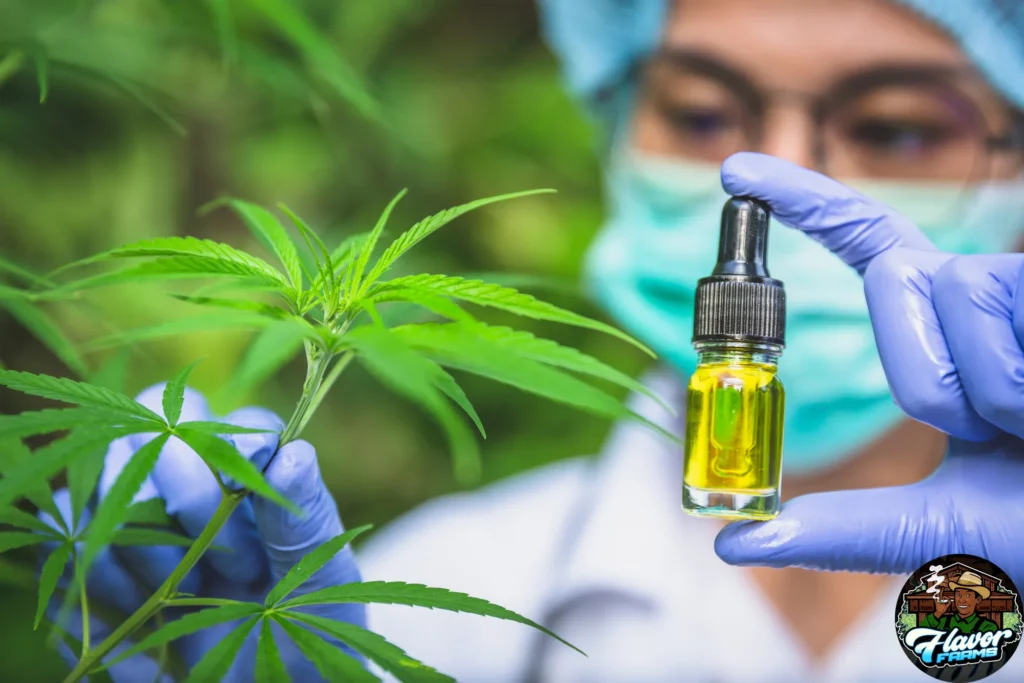Delta-8 and Delta-9 THC
Delta-8 and Delta-9 THC
Delta-8 and Delta-9 THC
Entering the intricate world of cannabis can feel like navigating a maze, with its multitude of compounds, strains, and products. Among these compounds, THC, or delta-9-tetrahydrocannabinol, has long been hailed as the star of the show due to its psychoactive properties. However, recent developments have thrust another contender into the limelight: delta-8-THC. In this article, we embark on a journey into the realm of THC for novices, with a particular emphasis on delta-8-THC and delta-9-THC. Are they mirror images or do they diverge significantly? Let’s embark on this exploration to unravel the intricacies.
Understanding THC: A Concise Overview
Before we plunge into the distinctions between delta-8 and delta-9 THC, it is essential to establish a foundational comprehension of what THC is and how it interacts with the human body.
What is THC?
THC, also known as delta-9-tetrahydrocannabinol, is a naturally occurring compound found in the cannabis plant. It is renowned for inducing the psychoactive effects associated with marijuana and has been the subject of extensive research due to its potential therapeutic benefits.
How Does THC Operate?
THC engages with the endocannabinoid system (ECS) within the human body. The ECS is a sophisticated network of receptors and neurotransmitters that plays a pivotal role in maintaining equilibrium. When THC binds to CB1 receptors in the brain and nervous system, it can generate effects like euphoria, relaxation, and altered perception.
Delta-8-THC vs. Delta-9-THC: Discerning the Discrepancies
Now, let’s embark on a journey to uncover the distinctions and resemblances between delta-8 and delta-9 THC.
- Chemical Structure: Delta-8 and delta-9 THC are structural isomers, implying they share the same atoms but are arranged differently. This slight variance in their chemical structure results in varying effects.
- Psychoactive Effects: Delta-9 THC is renowned for its potent psychoactive effects, often leading to an intense “high” that some users may find overwhelming. Conversely, delta-8 THC is reputed for generating a gentler and more clear-headed high, often described as being functional and less intense.
- Legality: While delta-9 THC is classified as a Schedule I controlled substance in numerous countries, delta-8 THC exists within a legal gray area. In certain regions, it is permissible as long as it is derived from hemp and contains less than 0.3% delta-9 THC. Nevertheless, the legal landscape is continuously evolving, necessitating thorough research into the regulations in your specific location.
- Source: Delta-9 THC is typically found in higher concentrations in marijuana plants, whereas delta-8 THC can be derived from both marijuana and hemp plants. Delta-8 THC products are often extracted from hemp, which contains less delta-9 THC and more CBD.
- Potential Therapeutic Benefits: Both delta-8 and delta-9 THC exhibit potential in addressing various health issues such as pain, nausea, anxiety, and appetite stimulation. However, further research is imperative to comprehensively understand their therapeutic potential.
Are all THC created equally?
The query of whether all THC is equivalent is intricate. Although delta-8 and delta-9 THC bear resemblances due to their chemical structure, they offer distinct experiences and potential benefits. The choice between them hinges on your personal inclinations and requirements. Here are some crucial considerations for newcomers:
- Sensitivity to THC: For newcomers or those with a low tolerance, delta-8 THC may serve as a more comfortable starting point due to its milder effects.
- Legal Considerations: Consider the legal status of these compounds in your region. Delta-8 THC may provide a more accessible option in areas with stringent cannabis regulations.
- Desired Effects: Reflect on your reasons for exploring THC. Are you seeking relaxation, pain relief, or an altered state of consciousness? Your objectives will steer you toward the type of THC that aligns with your needs.
- Product Quality: Opt for products from reputable sources and ensure they undergo third-party testing to confirm their cannabinoid content and purity.
Conclusion
The universe of THC can be bewildering, especially for newcomers. Delta-8 and delta-9 THC represent two distinct facets of the same compound, each possessing its unique characteristics and legal implications. Ultimately, the choice between them hinges on your individual preferences, tolerance, and objectives. Before experimenting with any THC product, meticulous research, consultation with a healthcare professional, and a thorough grasp of local laws are essential to make informed decisions. As the cannabis industry continues to evolve, staying updated on the latest developments and research is vital for making responsible and informed choices.

